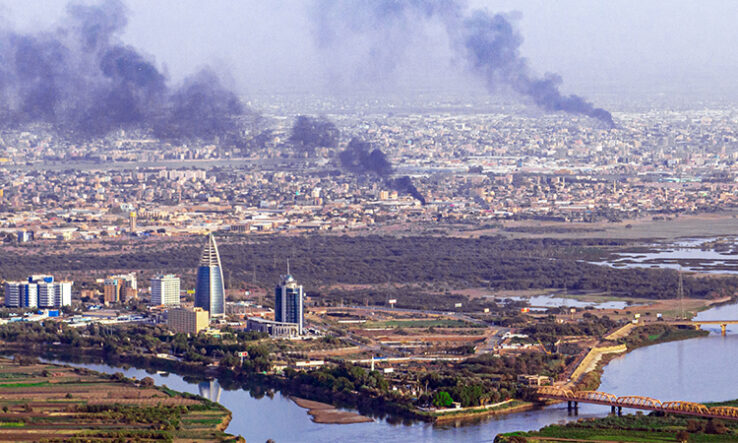
More than 100 universities and research centres damaged in months-long conflict
Sudan’s national science academy has appealed to academic institutions worldwide to help university staff and students displaced in the country’s violent conflict.
In a letter dated 21 September, the Sudanese National Academy of Sciences sets out how the months-long fighting between two factions of the country’s army has scattered Sudan’s research community and left universities and research centres in ruins.
“We appeal to our colleagues in the national academies…to support Sudanese students, researchers and university professors in this difficult period by providing admission to your universities and academic institutions until the crisis is over,” it says.
“We also appeal to you to approach all possible donors in your countries to help us obtain contributions to support the reconstruction of what was destroyed by the war.”
A critical situation
The conflict has raged since April this year and air raids have targeted urban and industrial centres, where many academic institutions are located. Vital services are “practically nonexistent” in many towns, the academy writes, particularly in Khartoum (pictured), the country’s capital.
On 27 August, Sudan’s Ministry of Higher Education and Scientific Research said that more than 100 universities and research centres had been damaged nationwide and that equipment and transport vehicles at institutions had been ransacked.
Nimir Elbashir, a Qatar-based Sudanese engineering professor, wrote in an email that the impact of the war was likely to be “much greater” than reported by the ministry. “No one yet has access to any of the facilities in the war zone,” he wrote. He said that starting estimates for the cost of damage could reach billions of dollars.
The situation is “critical” for academics in Sudan, the academy’s president Mohamed Hassan said. “With this open letter, we hope to raise awareness within the global scientific community, who I hope will show their solidarity with our plight.”
A scattered community
The situation has scattered students and academic staff, many of whom have fled to safe areas where no modern communications are available, the academy says. “As a result, even remote teaching is impossible.”
Suad Sulaiman, a member of the academy and government health and environment adviser, told Research Professional News that she had fled Khartoum with her family on 18 May as bombing and shooting had increased.
She has had difficulties leaving the country due to her and several members of her family’s passports being either expired, shredded or held for visas when the fighting intensified. She is currently living in Dongola in northern Sudan, waiting for Egyptian visas for the new passports, received only last week, which could take another two to three months, she says.
“Living in Dongola is hard,” she says. “We are going through our savings, there are no salaries or banks, the internet is slow and it’s hot and the rent expensive.”
She says she knows of several researchers from Khartoum who are going through a similar ordeal.
“Even if the war and fighting stops now, recovering and rehabilitation of what has been destroyed will not be easy,” she says. “[It will take] at least five years, even if the international community and donors are ready to contribute and help.”